Meet Vipin Zamvar: A Cardiac Surgeon Who Thinks Like a Grandmaster
Did you ever think that chess and cardiac surgery have something in common? This article dives into the life of Dr. Vipin Zamvar, a cardiac surgeon in Scotland. He sees striking parallels between these two worlds. He will feature on the latest episode of BBC2’s ‘Surgeons: At the Edge of Life”. He is also a passionate chess lover who has participated in FIDE-rated tournaments. He has an interesting way of bringing his work and hobby together. Discover how his unique approach helps him and what his dream is after achieving tremendous professional success. Photos: Vipin Zamvar
Calculated beats
How complicated is the human heart? I am not talking about feelings; I am talking about the actual physical thing. I remember those biology lectures in school. I could never draw a human heart right. Plus, those labels: artery, vein, which blood vessel carried what? It was a nightmare for me. I would just wonder, “How do doctors even do this?” Remembering is one thing, and ‘operating’ is another. How do they fix something that intricate? Just the thought of heart surgery would make my heart beat faster.
But why am I talking about a human heart? My job is to talk about chess. Well, if you observe, you will find something common between these two: complexity. This small but vital organ pumps blood throughout our body. It’s connected to billions of blood vessels that work in a rhythm. A rhythm that keeps our life’s game going. It’s very similar to chess. Chess is a maze of possibilities. There are endless variations, yet it follows a rhythm. Both are complex, both demand understanding.

Actually, I am not the one who saw this connection. It’s something that Dr. Vipin Zamvar has noticed. He is a cardiac surgeon by profession and a passionate chess lover at heart. He pointed out this connection in the latest episode of BBC2's 'Surgeons: At the Edge of Life'. This series takes us behind the scenes of operating theatres, the place where doctors have to make split-second decisions. In the latest episode, you would see Dr. Zamvar actually performing a complex beating-heart surgery and talking about how chess reflects his work. This episode will be aired at 2:30 AM IST on the 27th of March and the 1st of April here.
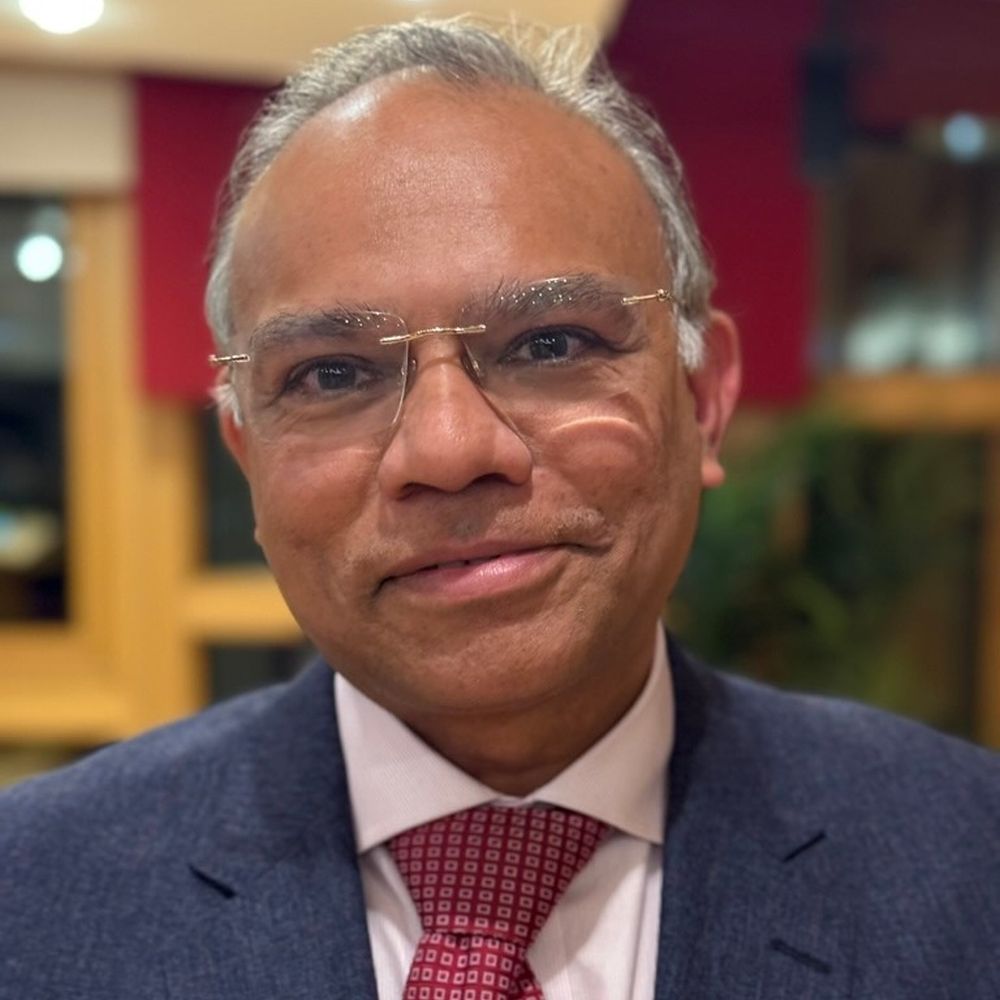
He was introduced to chess at the age of 5 by his father. He often used to play with his younger brothers and father and also participated in local tournaments. He became the College Chess Champion at Grant Medical College between 1983 and 1986. Not only this, but he also became the All-India Inter-medical Chess Champion in 1985 and 1986.
There were many times as a medical student, I would spend the whole day in the Common Room playing chess with my friends. I would miss my lectures and tutorials. And then one day it struck me that this would seriously interfere with my studies. So I quit Chess completely. In 1986, I stopped playing chess. - Vipin Zamvar.
His focus shifted to medicine. He became a Consultant Cardiothoracic Surgeon at the Royal Infirmary of Edinburgh and Chief Editor of the “Journal of Cardiothoracic Surgery”. He served as the President of the World Society of Cardiothoracic Surgery from 2015 to 2016. Currently, he holds the position of General Secretary. He was one of the first surgeons who started performing off-pump coronary artery bypass graft surgery in the UK.
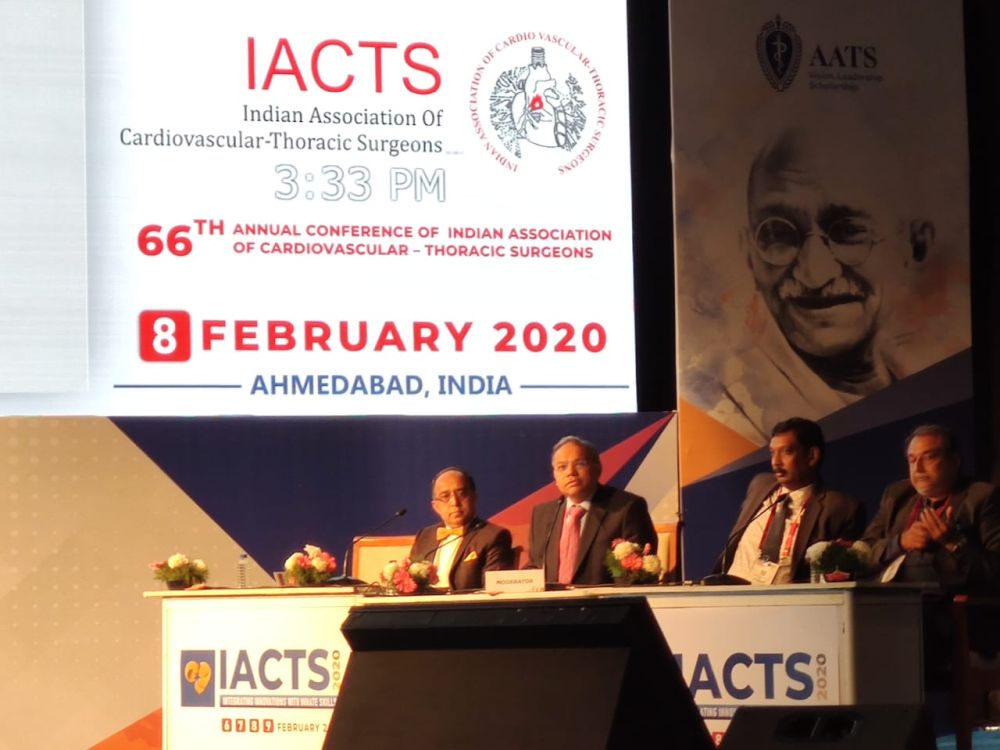
However, chess was never far from his heart. In 2010, he got a random email about a chess tournament at the Edinburgh Playhouse theatre. He participated in the tournament, and one of the club members even gave him a form to join the Edinburgh Chess Club. That’s how he was back in the game. He even participated in a tournament in Dundee that year and scored an impressive 3 out of 5. His lost spark was reignited. He started playing chess actively since then.
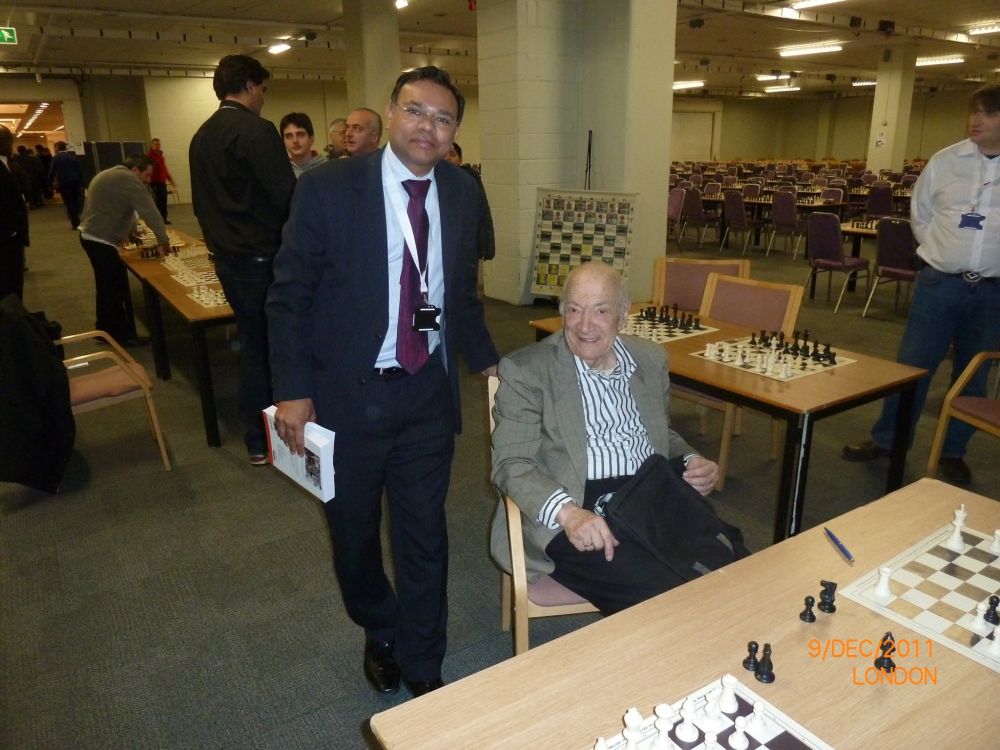
He spends hours and hours doing surgeries but still finds time for chess. Till now, if you have thought that he plays it just for fun, then let me tell you his current FIDE rating is 1750. It clearly shows his serious dedication to the game! You can tell he loves the game. If you want to see him in action, he will be playing in the Reykjavik Chess Open in April. It will be his third time playing there. And if you want to see him in action in the operating room, The BBC episode is your chance.
Beyond just playing, Dr. Zamvar is a strong supporter of the chess community. He wants to support promising chess players in whatever way he can. In the past, he has hosted chess players at his place.
My philosophy of life is very simple. We are here only for a short period of time, and in that time, it is best to be as kind as possible and to help others as much as possible. And all the time to do what you enjoy, so life turns out to be a holiday. I like Chess, and I like the company of chess players. That is the only thing that motivates me. - Vipin Zamvar.
When asked about how he found parallels between heart surgery and chess, he mentioned:
“Performing a surgery on the beating heart is technically challenging. So, it is important to simplify the technical manoeuvres as much as possible. Very early on in my career, I realised that if there was enough space around the heart for manoeuvring your instrument, you could make the operation easier for yourself. And if there is enough space for the assistant and his instruments as well, then he will be able to assist you very well. I like to make the operations simple so that I can guarantee a reliable and good result for the patient. That is where the space advantage comes in. Even in Chess, if you have managed to reach a position so that all your pieces are able to help one another, and also have a lot of freedom to move from one part of the board to another, you will be in a comfortable position and will have an easy game and will have a positive outcome. This is what I mean by space advantage in beating heart surgery.”
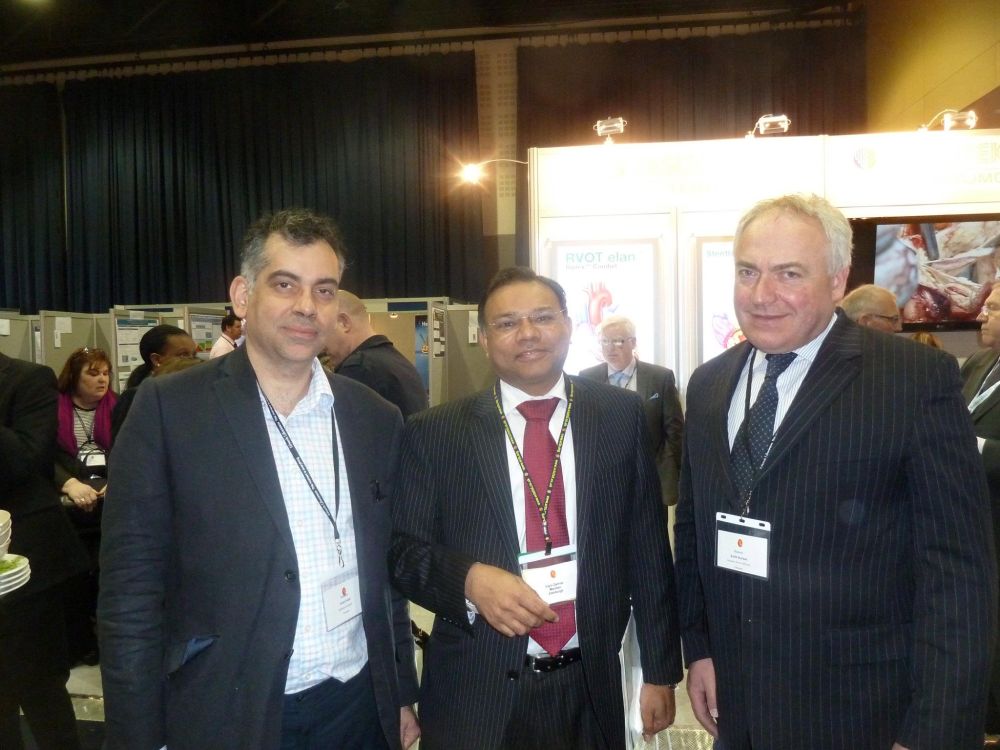
He also talked about the importance of decision-making under pressure. Something which is very common in chess:
“I never get stressed when I operate. The day I start feeling stressed when I operate, I will stop operating. However, cardiac surgery is high-stakes surgery, and the decisions you make can sometimes be the difference between life and death. There are many similarities between Chess and Cardiac surgery. Both require a unique set of cognitive skills. Sometimes in Chess, you have to think a few moves ahead and be alert to different possibilities. The same applies to Cardiac surgery. You have to be mindful of unanticipated events happening in theatres that need immediate action. There is a lot of similarity between pattern recognition in Chess and dealing with complications or problems in Cardiac theatres. Things do not always go to plan, so decisions sometimes have to be made under pressure. The ability to stay calm and make the correct decisions is a skill that is required in both endeavours. Like in Chess, in Cardiac Surgery, too, your decisions have immediate consequences, and seldom there is any going back. I think playing chess with an interest that is more than just a hobby allows me to cope with the pressures of cardiac surgery better."
Naturally, a passionate chess player would have opening preferences. Vipin Zamvar is no exception. His favourite opening as Black is the Caro-Kann, and for White, he generally prefers opening with d4 (followed by the London - not a surprise). But he shared a problem with having favourite openings:
The problem with having favourite openings is that sometimes your opponents can spend some time doing last-minute preparations targeting your favourite openings. (And that has happened to me a few times.) - Vipin Zamvar shared his struggle as a chess player.
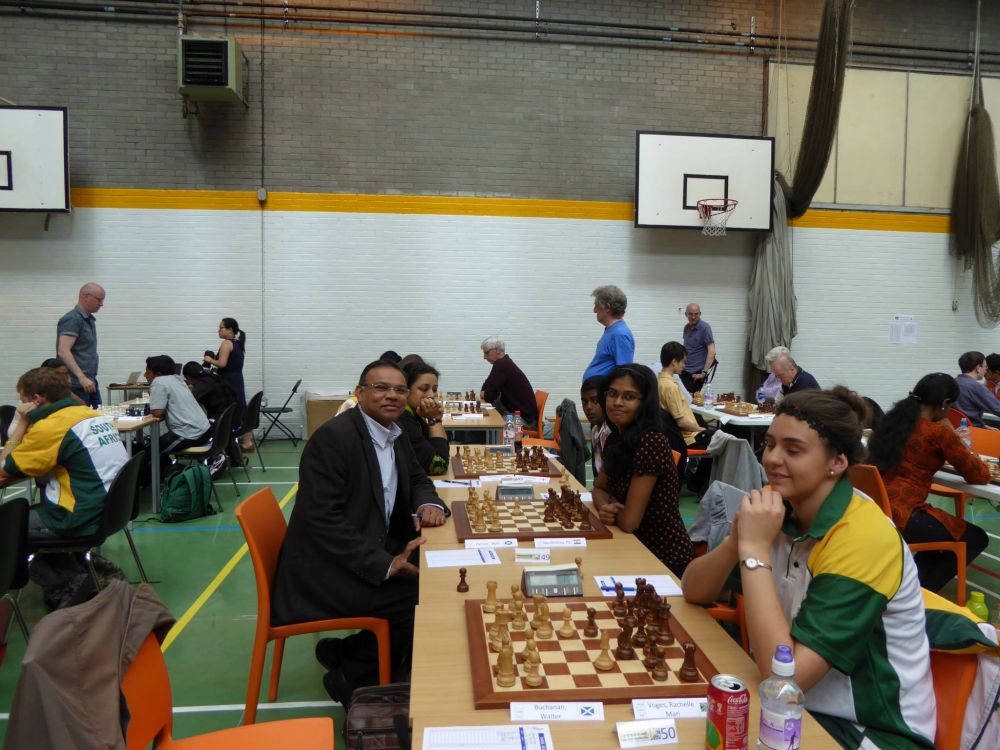
Looking to the future, Dr. Zamvar has ambitious chess goals. At present, chess is just a hobby for him. But after five years, when he will retire, he is planning to test the 10,000 hour rule.
I am going to spend most of my free time playing and learning Chess. I am going to find myself a coach, and I will aim to be an International Master. And if that happens, I will perhaps be the oldest person ever to become an International Master.
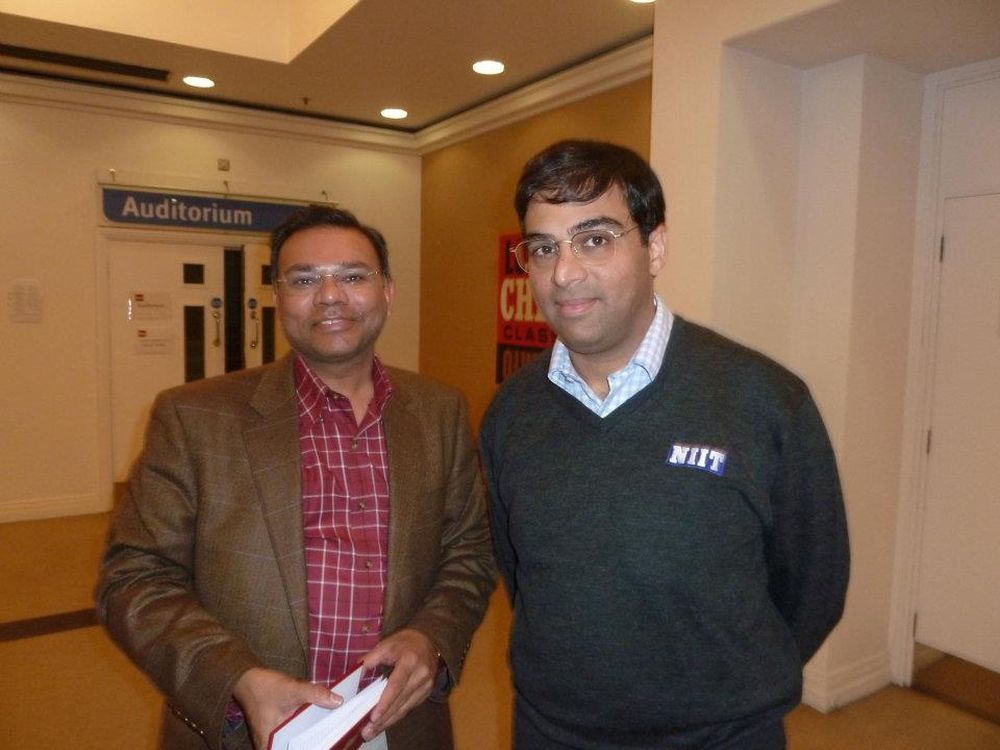
I love it when people dream big, especially at this stage of life. Dr. Zamvar believes in the saying, “Who shoots at the midday sun, though he be sure, he shall never hit the mark, yet as sure he is, he shall shoot higher than who aims but at the bush”. Honestly, after hearing that, I think I am making that my motto for 2025, at least! And his ambition to bring his favourite player, Viswanathan Anand, to the Edinburgh Chess Club is pure inspiration! “I have asked Vishy. He has not said no, but he has not said a definite yes either”, he says with hope.
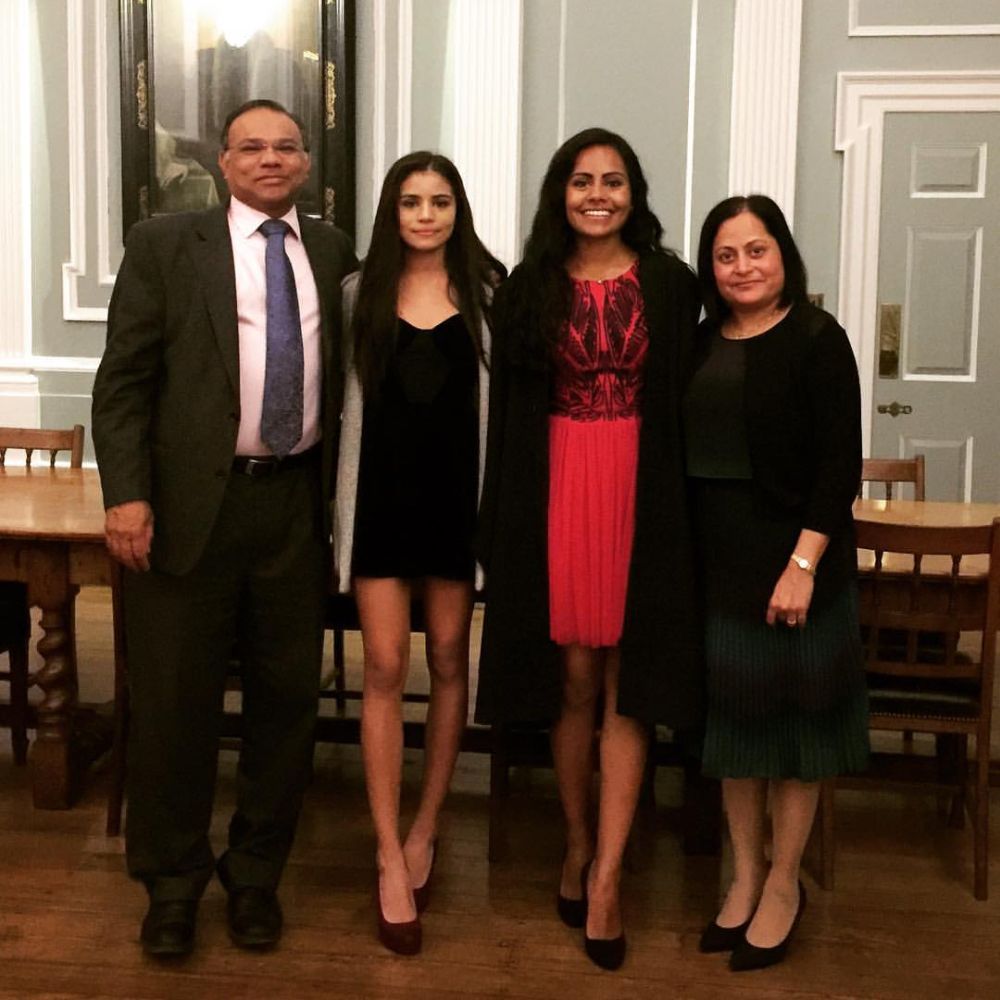
Till now, Dr. Zamvar has one big regret. It’s about not introducing chess to his daughters when they were little.
As I said, I stopped playing Chess between 1986 and 2010. And by the time I re-started Chess in 2010, my daughters were 14 and 10 years old. At that age, it was not possible to get them interested in Chess. But I am not going to make that mistake with my grandchildren (when they come). I am going to make sure that there are chess boards and pieces around them all the time, so that they grow up with chess.
This article started as a look at how chess and heart surgery are similar. But it became something more. After talking to Dr. Zamvar, you would realize how simple moments are more precious than professional achievements. Those sweet wishes, those little ‘if only’s’ remind us that no matter how extraordinary our achievements are, we still have simple hopes that truly matter to us. We love to share our passions with those we love. And that makes life feel full!
Dr. Vipin Zamvar’s episode will be aired at 2:30 AM IST on the 27th of March and the 1st of April here.


